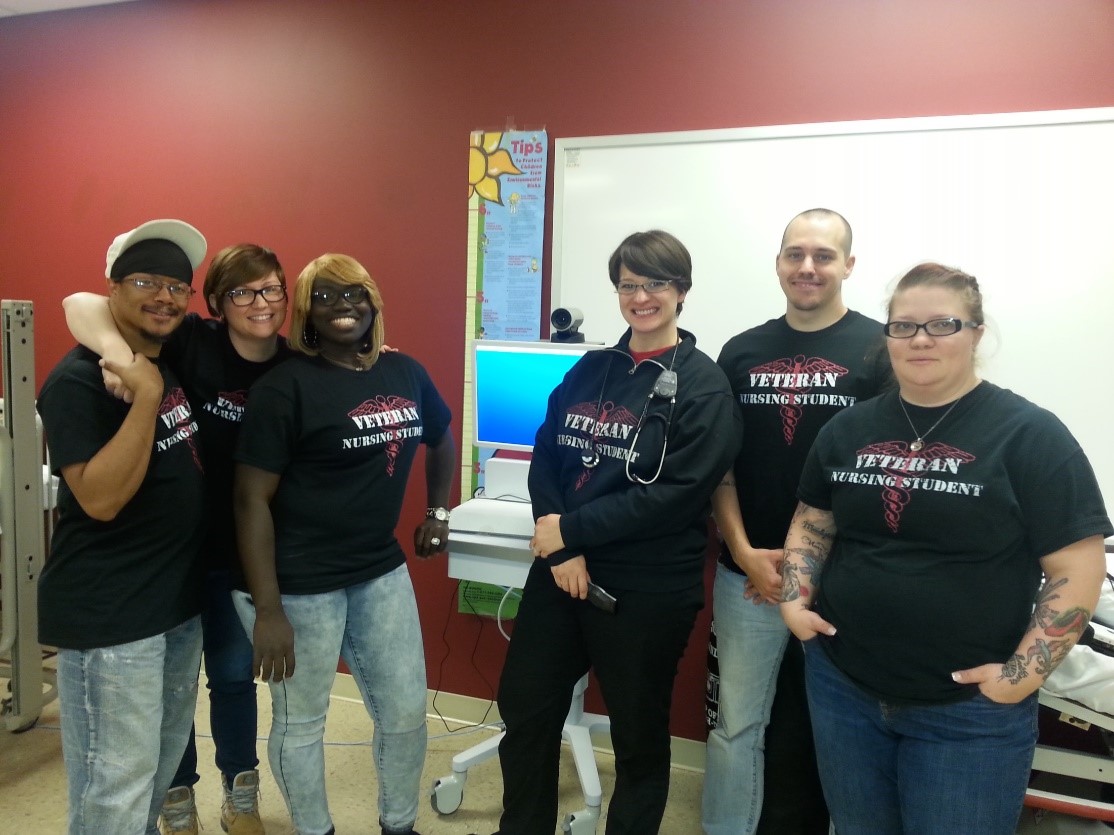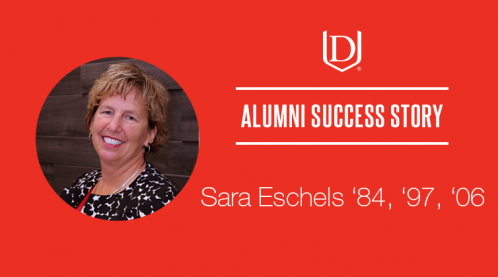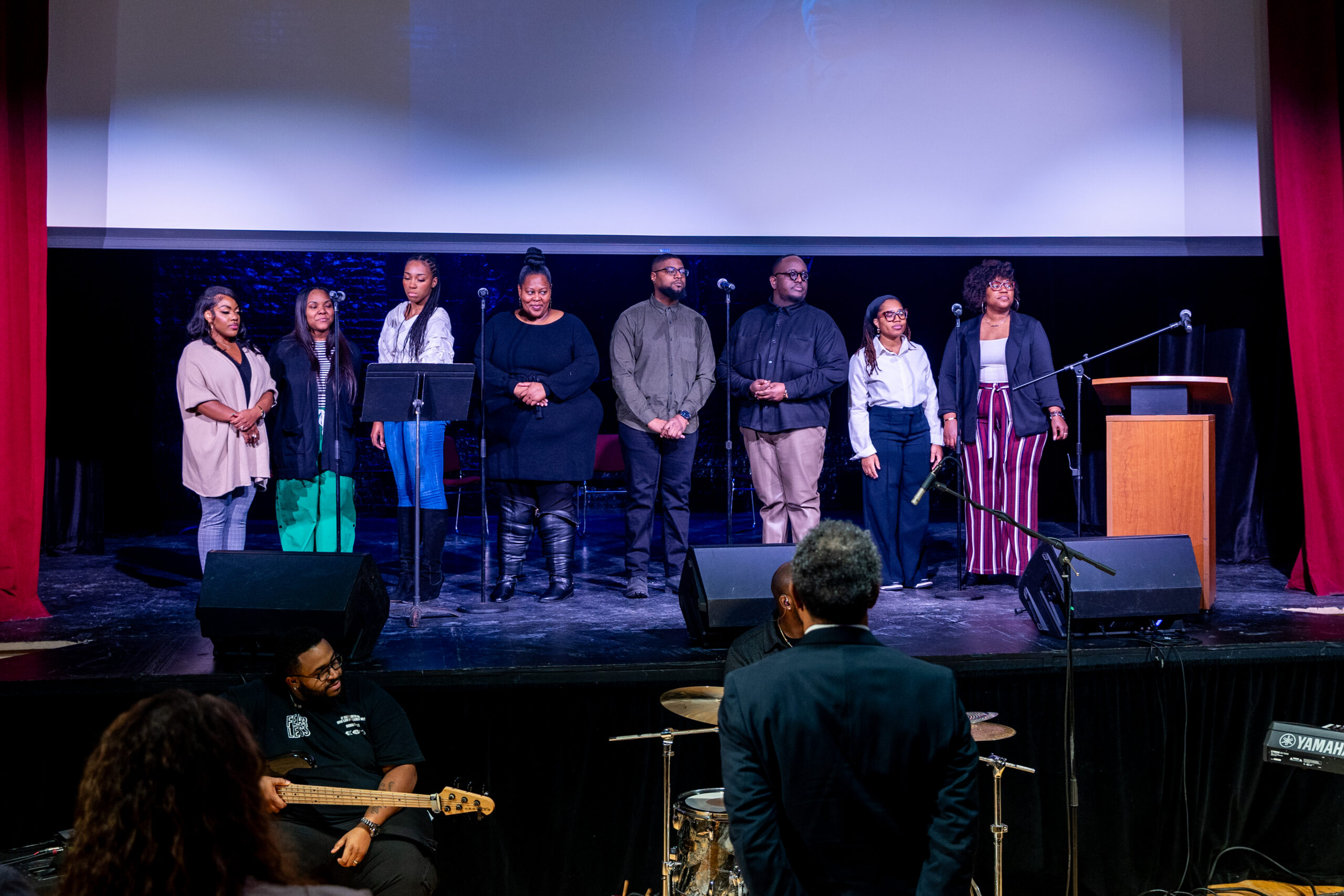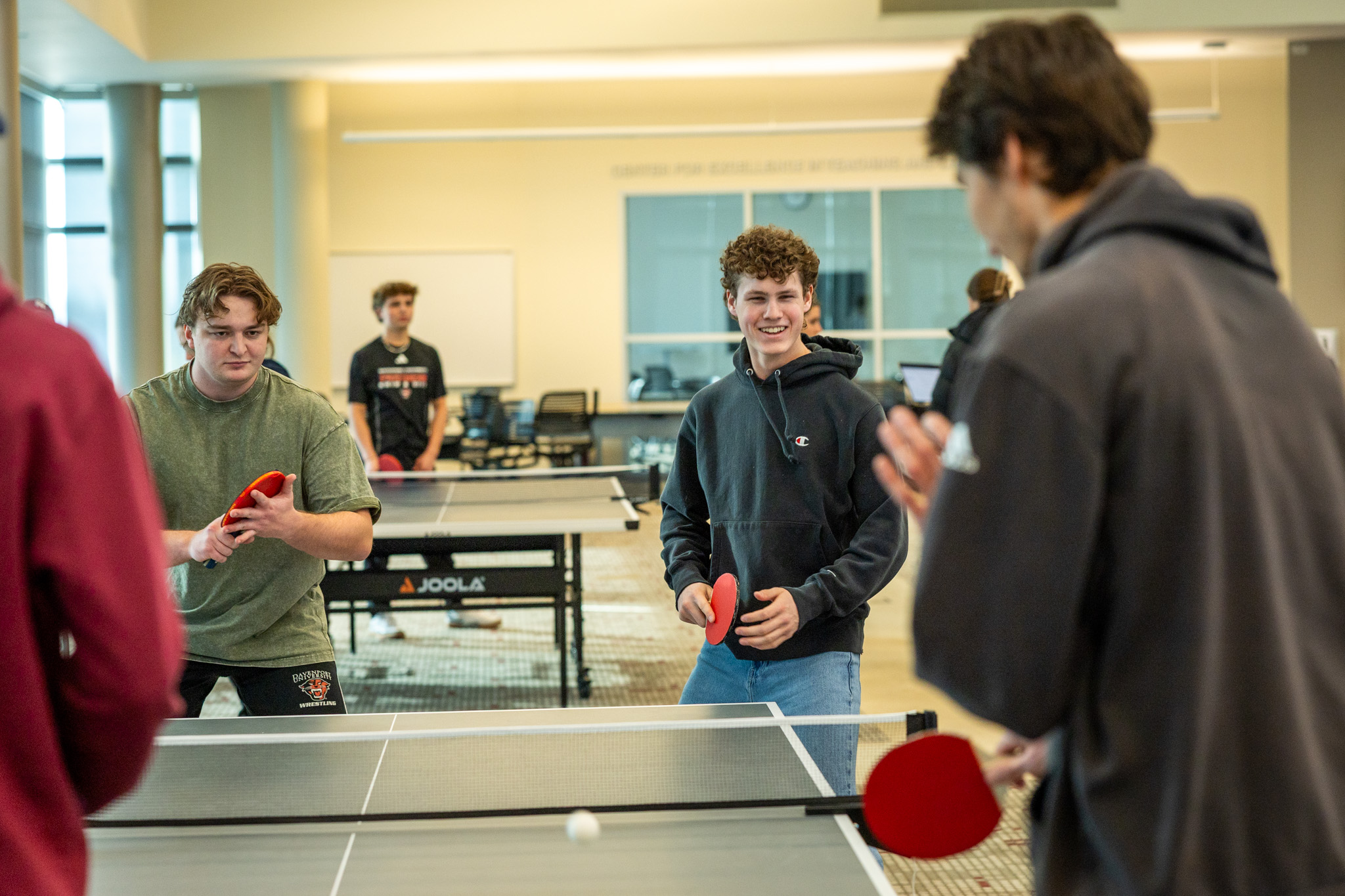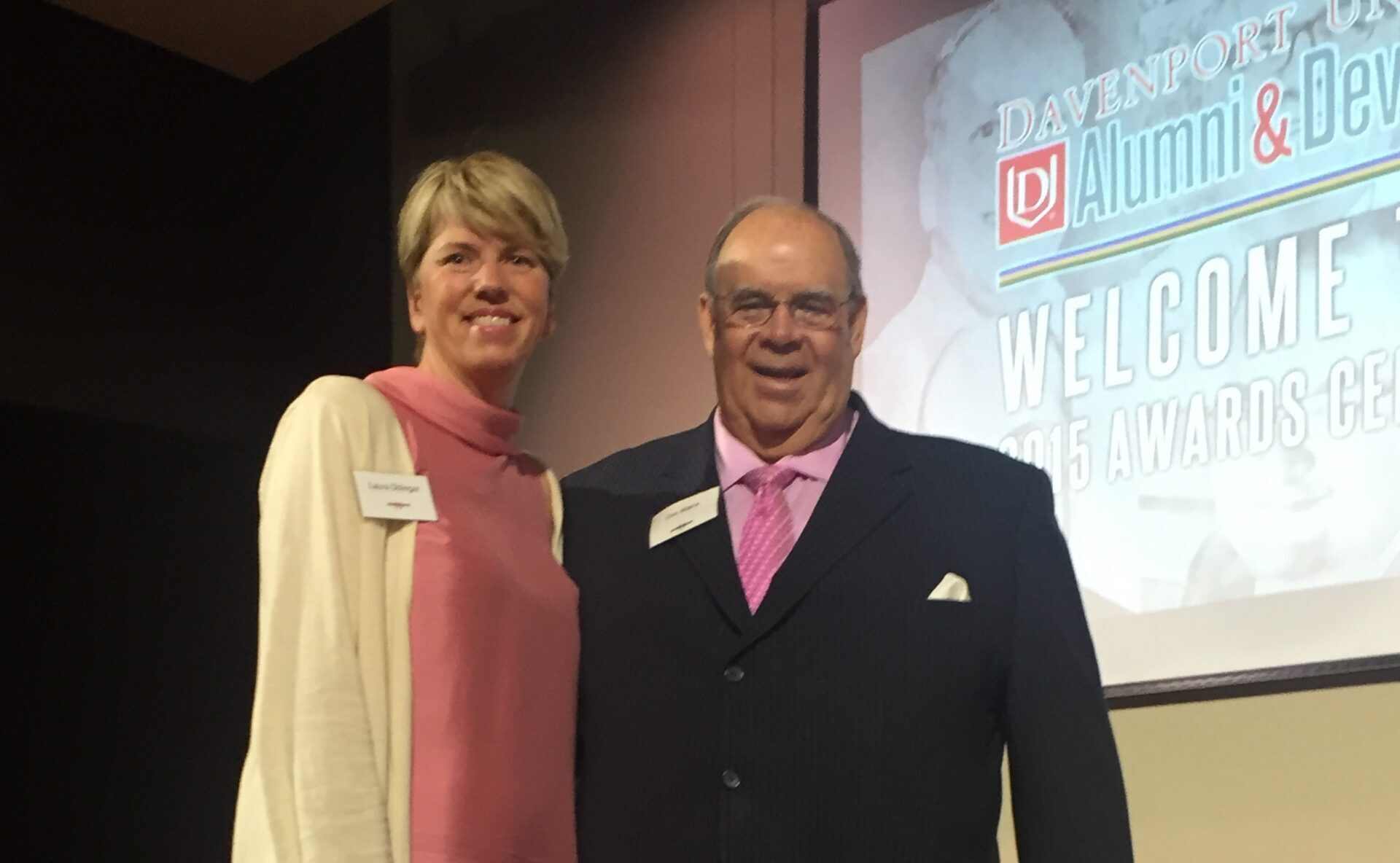Davenport University’s Veterans to Bachelor of Science in Nursing (VBSN) academic pathway was designed to help service members with military medical experience earn advanced standing and fast-track into the Bachelor of Science in Nursing (BSN) program. Through this pathway, service members gain credits for their military experience, reducing time-to-degree from four years to three.
The VBSN program began in 2013 when Davenport University received a federally funded* grant from the Health Resources and Services Administration. Since then, more than 50 students have benefited from the work of the VBSN team – a total of 20 VBSN students will have graduated and 30 additional students will still be moving through the pathway as of May 2019.
Over the last five and a half years, Project Director and Dean of the College of Health Professions Karen Daley and the VBSN team have made substantial contributions to the university’s understanding of how we lead military-trained veterans into accelerated academic pathways.
Specifically, the VBSN pathway allows for the incorporation of transfer credits and credit for military experience, which is transcripted as advanced standing and reduces time-to-degree.
The team has achieved significant results while working toward this initiative. Not only have they increased retention of military medical students in general, they have also:
- Increased retention of military medical nursing students from 75 to 90%
- Increased graduation rates to 60%, exceeding the national rate of 53% (NVEST)
- Enabled a 100% pass rate of the nursing board exams (NCLEX) for both cohort 1 and 2
Analysis of a three-year survey of both the VBSN students and other nursing students also resulted in focused work to create two sustainable trainings for faculty and staff – Military Simulation and Green Zone. These trainings were developed with the assistance of the Office for Performance Excellence and contributions from Lindsey Shull in experiential learning and Charity Landrum, former VBSN research associate.
The Military Simulation and Green Zone trainings are focused on creating a more inclusive campus culture for military students and providing our faculty and staff with a greater understanding of the military experience.
Though February 21, 2019 marks the end of this five-and-a-half-year grant, the work of the team and the pathway they created will continue.
Through a process of specialized evaluation, additional students are expected to be accepted into this pathway going forward. The new process will use the original grant criteria, which awards 24-36 credits toward a nursing degree based on a student’s military medical experience.
The lessons learned and best practices identified to support not only military nursing students but all military students will continue to drive DU faculty and staff to support successful progression, retention and graduation of our military students.
Thank you to our nursing leaders Dr. Amy Stahley and Kelli Leask, who led this program with the support of their associate department chairs and grant-funded team – VBSN coordinator and faculty Renita Elder Robinson, VBSN advisor Dana Hill, student research associate Rachel Whitney, VBSN recruiter Shawn Ellis, and Rebecca Ventura, who taught the transitions class to incoming cohorts – for all of the work that made this initiative a success.
Dr. Amy Stahley oversees the VBSN pathway and will serve as the contact going forward. She can be reached at 616-817-6162 or Amy.Stahley@davenport.edu. More information about this pathway can be found here.
*This project is supported by the Health Resources and Services Administration (HRSA) of the U.S. Department of Health and Human Services (HHS) under grant number UF1HP26488 and title “Veterans to BSN Program” for $1,527,068, with 0% financed with nongovernmental sources. This information or content and conclusions are those of the author and should not be construed as the official position or policy of, nor should any endorsements be inferred by HRSA, HHS or the U.S. Government.
Share This Story!
Davenport University’s Veterans to Bachelor of Science in Nursing (VBSN) academic pathway was designed to help service members with military medical experience earn advanced standing and fast-track into the Bachelor of Science in Nursing (BSN) program. Through this pathway, service members gain credits for their military experience, reducing time-to-degree from four years to three.
The VBSN program began in 2013 when Davenport University received a federally funded* grant from the Health Resources and Services Administration. Since then, more than 50 students have benefited from the work of the VBSN team – a total of 20 VBSN students will have graduated and 30 additional students will still be moving through the pathway as of May 2019.
Over the last five and a half years, Project Director and Dean of the College of Health Professions Karen Daley and the VBSN team have made substantial contributions to the university’s understanding of how we lead military-trained veterans into accelerated academic pathways.
Specifically, the VBSN pathway allows for the incorporation of transfer credits and credit for military experience, which is transcripted as advanced standing and reduces time-to-degree.
The team has achieved significant results while working toward this initiative. Not only have they increased retention of military medical students in general, they have also:
- Increased retention of military medical nursing students from 75 to 90%
- Increased graduation rates to 60%, exceeding the national rate of 53% (NVEST)
- Enabled a 100% pass rate of the nursing board exams (NCLEX) for both cohort 1 and 2
Analysis of a three-year survey of both the VBSN students and other nursing students also resulted in focused work to create two sustainable trainings for faculty and staff – Military Simulation and Green Zone. These trainings were developed with the assistance of the Office for Performance Excellence and contributions from Lindsey Shull in experiential learning and Charity Landrum, former VBSN research associate.
The Military Simulation and Green Zone trainings are focused on creating a more inclusive campus culture for military students and providing our faculty and staff with a greater understanding of the military experience.
Though February 21, 2019 marks the end of this five-and-a-half-year grant, the work of the team and the pathway they created will continue.
Through a process of specialized evaluation, additional students are expected to be accepted into this pathway going forward. The new process will use the original grant criteria, which awards 24-36 credits toward a nursing degree based on a student’s military medical experience.
The lessons learned and best practices identified to support not only military nursing students but all military students will continue to drive DU faculty and staff to support successful progression, retention and graduation of our military students.
Thank you to our nursing leaders Dr. Amy Stahley and Kelli Leask, who led this program with the support of their associate department chairs and grant-funded team – VBSN coordinator and faculty Renita Elder Robinson, VBSN advisor Dana Hill, student research associate Rachel Whitney, VBSN recruiter Shawn Ellis, and Rebecca Ventura, who taught the transitions class to incoming cohorts – for all of the work that made this initiative a success.
Dr. Amy Stahley oversees the VBSN pathway and will serve as the contact going forward. She can be reached at 616-817-6162 or Amy.Stahley@davenport.edu. More information about this pathway can be found here.
*This project is supported by the Health Resources and Services Administration (HRSA) of the U.S. Department of Health and Human Services (HHS) under grant number UF1HP26488 and title “Veterans to BSN Program” for $1,527,068, with 0% financed with nongovernmental sources. This information or content and conclusions are those of the author and should not be construed as the official position or policy of, nor should any endorsements be inferred by HRSA, HHS or the U.S. Government.
Share This Story!
Stay connected!
Get the latest Davenpost News delivered to your inbox!
Related Stories
On April 27, the Davenport University family came together for the inaugural Davenport Day. More than 60 Davenport alumni, students, staff, [...]
Estate planning is key for senior citizens, but some local seniors and low income citizens might not have the spare [...]
As a three-time alumna of Davenport, Sara Eschels ’84, ’97, ’06 believes in paying it forward, just as her former [...]
Latest Stories
Members of the West Michigan community gathered at Grand Rapids’ Wealthy Theatre on Feb. 4 to honor Rev. Dr. Martin [...]
The familiar pop-pop of ping-pong balls filled the CLE at Davenport University’s W.A. Lettinga Grand Rapids Campus as students, staff [...]
Photo caption: Laura Oblinger and the late Donald W. Maine Davenport University’s Direct Connect partner, Northwestern Michigan College, is celebrating [...]

